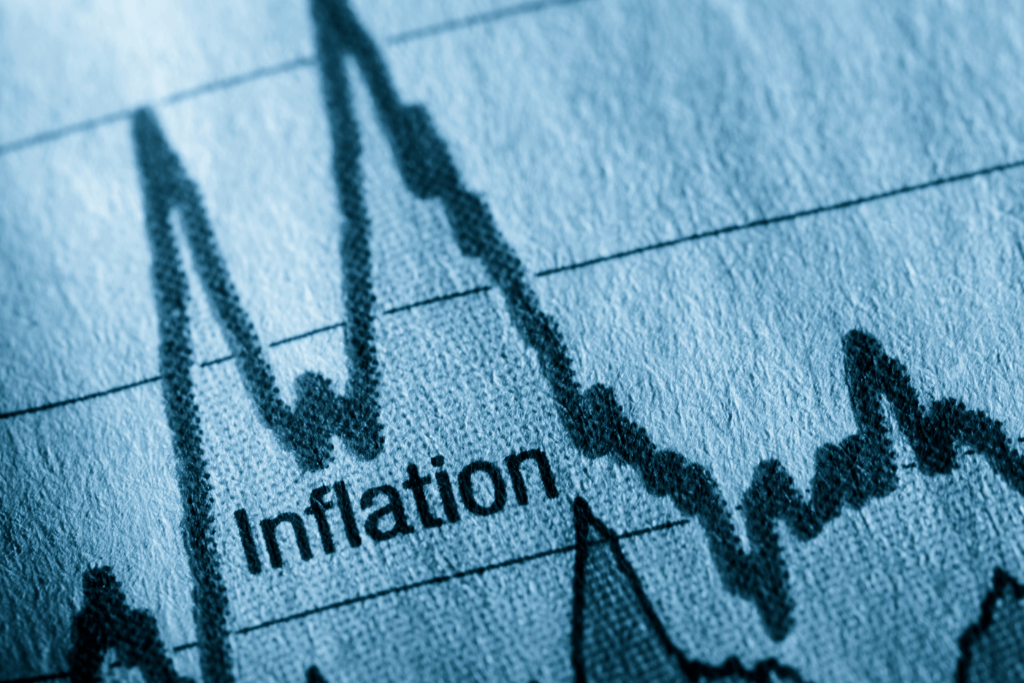Dear Chuck,
Since my money is obviously buying less and less, how do I wisely invest in an inflationary economy?
Fearful Senior
Dear Fearful Senior,
While I am not an economist, I am an investor. I believe you have expressed a very relevant concern for all of us, not just seniors.
We have experienced years of low inflation. The last time I remember a period like this was in the late 70’s to early 80’s. But inflation is definitely on the rise and is creating uncertainty in the minds of many consumers and investors. In fact, a recent article by my friend, Jerry Bowyer, describes 2021 as “the year of inflation.”
A Broad Concern
Although Federal Reserve Chairman Jerome Powell believes that inflation is only temporary and will be short lived, Forbes.com gives 3 reasons why they believe an inflation surge will continue:
Consumer sentiment fell a sharp 13.4% from July to August according to the University of Michigan, Surveys of Consumers. Losses were widespread across all demographic groups, regions, and economic outlooks. Consumers’ opinion of current economic conditions dropped 7.1%, and the index of expectations dropped 17.6%. Reactions were due to the Delta variant, slower wage growth, smaller declines in unemployment, and… higher inflation.
In August, MarketWatch’s Jeffrey Bartash reported: “The rate of inflation in the U.S. rose again in July and drove the increase over the past year to a 30-year high.” The website referenced the advice of several professionals.
Ramit Sethi: “Investing is the single most effective way to get rich. Inflation can be bad for individuals when you just keep your money sitting in a bank account and do nothing else with it.”
Tiffany Lam-Balfour: “If you’re invested for the longer-term in a well-diversified portfolio, you’ve likely already got inflation protection built in. Staying invested and not holding too much cash are two sound ways to fight against inflation.”
Follow God’s Advice
The key to investing in an inflationary economy is diversification. It is the means by which wins can cover losses. Mixing different assets and investments is a way to limit your exposure to risk and provide a hedge against volatility. Solomon wrote about it in Ecclesiastes:
With diversification, short-term gains may be limited, but long-term gains can be higher. Plan to invest some time to research and monitor your portfolio. Find ways to limit high fees and commissions by looking for value that you can buy and hold.

Stocks can be a good investment during inflation, but you must do your research. Look for well-managed companies with a healthy cash flow. Some people hedge inflation with investments in rental property. This requires knowledge and careful timing to lock in a low-rate mortgage where property values are expected to rise. Make sure you study the benefits and risks. Remember, investing is not gambling or guessing!
You can make money by wisely investing during an inflationary period. Sam Swenson at The Motley Fool sees it as an opportunity to reexamine your portfolio and make necessary adjustments. Bottom line: Prepare now so you can avoid the continual erosion of your purchasing power.
I have included below a few of the websites that can be helpful to you as you manage your investment decisions. Thank you for writing. I hope this will reduce your fears and help you be prepared for the days ahead.
Helpful Resources from a Christian perspective:
Others: Business Insider, Forbes, and The Motley Fool
My latest book, Seven Gray Swans: Trends that Threaten Our Financial Future, is an essential read for those wanting to keep an eye on the economic threats we face in our nation. Many of these trends seem to be accelerating now. The e-book is available at Amazon.com.
This article was originally published on The Christian Post on October 1, 2021.
Subscribe for Weekly Updates
"*" indicates required fields
Search
Christian Credit Counselors

Is credit card debt causing you stress and strain? Christian Credit Counselors would like to help!
Notifications